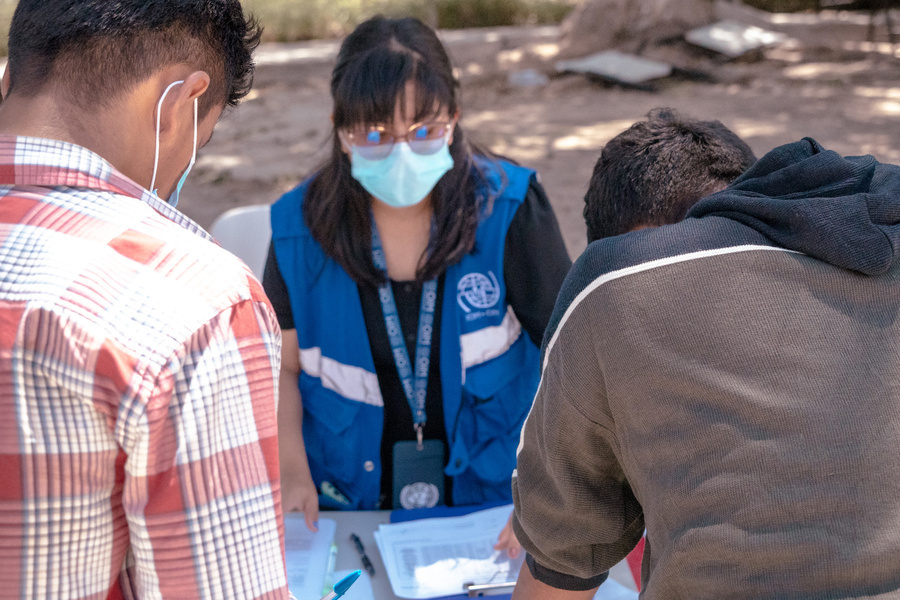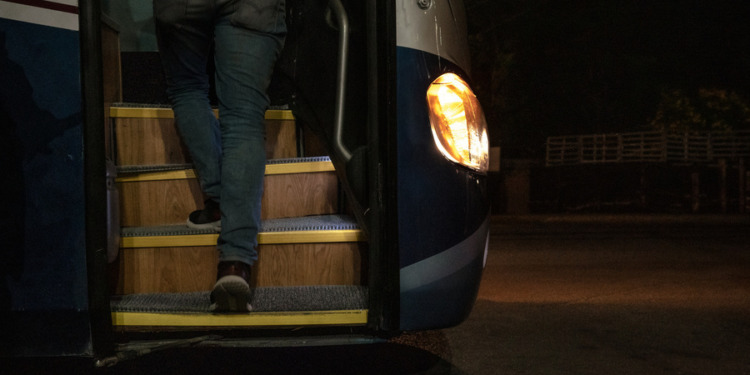Most worldwide attention by governments, international organizations, and political parties has focused on those seeking to come to a country, whether as refugees or immigrants. This has become a major politically divisive issue for both countries in the Global North and Global South.
Typically, resistance in the receiving country to new immigrants has been driven by underlying grievances such as the potential loss of jobs, prospects of increased demands on public services, and doubts about new arrivals in large numbers adapting or altering the national culture.
As to the latter, as political scientist and Oxford U. Professor Alexander Betts writes in “The Wealth of Refugees: How Displaced People Can Build Economies”):
“[T]he relationship between cultural difference and exclusionary attitudes is not inevitable but contingent upon contextual mediating factors such as the media and elite discourse.”
In most cases immigrants and refugees are legitimately seeking a new place of safety, to get away from a place where their lives are in danger, doing so out of despair, or driven by crime or economic factors, and deserve our empathy and support.
In developed countries, often such migration resistance is an important platform of the far right. In the United States, the “Make America Great Again” (MAGA) movement led by Donald J. Trump strongly opposes more open immigration policies. Similarly, right-wing governments in Europe, such as those in Hungary, Austria, Netherlands, and Italy, are advocating for restrictive immigration policies.
The rise of far-right parties in Europe is evident in the recent European Parliament elections. In Germany, the AfD party came in second place, ahead of the Chancellor’s party, while in France, Marine Le Pen’s party reached a third of the votes, beating President Macron’s party. Macron responded by dissolving the National Assembly and calling for snap legislative elections. This trend is not limited to these countries, as many other regions worldwide show similar patterns.
Regarding those wanting to leave their country, there are different reasons other than what Alexander Brett has described as “survival migration”: People fleeing complex drivers of displacement…who do not neatly fit in the definition of being either a refugee or an economic migrant.”
Take for example health and other skilled professionals in developing countries — they may be recruited and offered better salaries and working conditions in developed countries. This can lead to a “brain drain” in their home country, which can be viewed as especially painful as many have had their education supported by their government. And then there are those who leave a developed or developing country to avoid taxes, civil lawsuits, claim property, or want a warmer climate.
The focus here is on what might be described as “politically outwardly driven middle-class migrants,” those who leave primarily because they have grown disaffected politically by what is or could be happening at “home.”
This has accelerated as autocratic regimes grow or possible semi-dictatorships arise around the world. These are often people living relatively satisfying lives in not-so-long-ago Western-style democracies. Now, for the first time, they have begun to consider alternatives.
Related Articles: Europe’s Refugee Crisis Is a Crisis of Humanity, not Migration. | Migrants in America Used As ‘Political Pawns’ in Relocation Scheme | Evidence of Abuse by Greece: Migrants Found Frozen To Death | UN Refugee Agency Condemns Violence at EU borders | Europe’s Migration Problem: Why It Is Hard to Solve
For most, it is not because they have been directly threatened physically or otherwise find themselves in immediate jeopardy, but because they see that the political environment and prospects of governance have so worsened or will be worsening, such that democratic guardrails on which they rely as pillars of their society, will no longer work. They look for landing sites with greater rule of law, personal freedoms, and political stability.
We are discussing individuals and their families who are better educated and have decent jobs, transferrable technical skills, and financial resources. Typically, they are citizens with full rights, strong cultural and social ties to their communities, and solid economic roots. This is, in short, a growing population of politically driven “middle-class migrants.”
For any such person or family, it would represent a drastic major step in turning away from a reasonably secure life and being confident that new roots elsewhere will be better, doing so based principally on perceived unpalatable changes at “home.” Any such decision is not just a physical passage from one place to another; it has psychological consequences and risks for all concerned.
Assuredly this is not the first time in history for such a middle-class dilemma and response — in the twentieth century, prosperous Germans fled Hitler and Nazism; educated East Germans went to the West; others fled Soviet Republics, some of those Republics subsequently became separate and more democratic, but not the Russian Federation. Today, and over the last two years the invasion of Ukraine has meant that estimates of hundreds of thousands of talented technologically skilled Russians left their country, because of Putin’s war policies (their reception has been mixed with difficulties in finding work).
Where to go and what to consider
For such middle-class individuals and families seeking to find a new country, several factors need to be considered, including the prospective country’s immigration policies, economic opportunities, social integration programs, and overall stability. Country situations are often in flux, but a few Western countries traditionally have been more open, such as Canada, Australia, New Zealand, and in years past, Germany, and the Netherlands. Note that the United States has been among those most sought, but this may be changing.
For those with options, the choice as to where to go is shaped by many factors, including the ease or difficulty of pathways to residency and citizenship, the availability of health care, education, and other social services available to new arrivals, housing, and the reliability of infrastructure.
Who can help
Middle-class families need assistance when relocating, whether through person-to-person support or by utilizing institutional services. Among them:
Official International Organizations: The United Nations High Commissioner for Refugees (UNHCR), and the International Organization for Migration (IOM) offer assistance and access to critical services.

Non-Governmental Organizations (NGOs): Organizations like the Red Cross, Save the Children, and Doctors Without Borders can, if needed for middle-class arrivals, offer immediate medical care, shelter, food, and psychosocial support.
Host Country Communities: Host country communities contribute to support systems for new arrivals. This can assist in access to education, healthcare, and employment opportunities, and promote social integration through community programs and initiatives.
Financial Assistance and Economic Empowerment: A number of countries offer economic empowerment programs, microfinance initiatives, and job training opportunities to help start businesses in the new environment. Here are some examples:
- Canada: Offers various programs through the federal government and provinces, including microloans, business mentorship, and skills training.
- Germany: Programs like “EXIST – Existenzgründungen aus der Wissenschaft” support innovative business ideas from immigrants and offer training and funding opportunities.
- France: “ADIE” (Association pour le Droit à l’Initiative Economique) provides microcredits and business support to those who have difficulty accessing traditional financing.
- United Kingdom: The Prince’s Trust Enterprise Programme offers training, mentoring, and funding for young entrepreneurs, including immigrants.
- Australia: The “New Enterprise Incentive Scheme” (NEIS) provides business training and income support to eligible individuals, including immigrants, who want to start their own businesses.
- New Zealand: Initiatives like the “Business Mentors New Zealand” program offer free mentoring and advice to new business owners, including immigrants.
Social Services: Social service agencies in some host countries provide essential support, including housing assistance, language training, cultural orientation, and counseling services. Here are some examples:
- Canada: Government-funded settlement agencies offer language classes, job search assistance, and cultural orientation programs, including the YMCA Newcomer Information Centres and the Immigrant Services Society of BC.
- Germany: The Federal Office for Migration and Refugees (BAMF) coordinates integration courses that cover language skills, cultural knowledge, and legal information. Local organizations like Caritas Germany and Diakonie also provide support services.
- Sweden: The Swedish Migration Agency offers introductory programs for new arrivals, including language training and civic orientation. Municipalities also provide housing assistance and social services.
- Australia: The Department of Home Affairs funds migrant resource centers that offer settlement services such as English language classes, employment assistance, and information about housing and healthcare.
Cultural and Religious Support: Cultural and religious organizations offer spaces for religious worship, cultural events, and social gatherings that help families maintain their traditions and beliefs in exile.
Such support systems, both formal and informal, can potentially assist with a safety net for middle-class families to deal with the challenges of a new country and rebuild their lives.
What it means to take such drastic action
A decision for an individual or a family to leave their homeland is hard and disruptive. It involves leaving behind all that is comfortable and familiar and risking it all in a new environment, one they hope will be welcoming and more to their liking.
To make a move of this magnitude means the fear of what their society has or is becoming intolerable, necessitating drastic action. Unfortunately, this is increasingly a reality in many places, making more people consider doing so.
Editor’s Note: The opinions expressed here by Impakter.com columnists are their own, not those of Impakter.com –In the Cover Photo: Transfer and distribution of people in the network of shelters to go to the border bridge early in the morning, Monterrey, Nuevo León, Mexico, 05/08/2022. Cover Photo Credit: Alejandro Cartagena / International Organization for Migration 2022.










